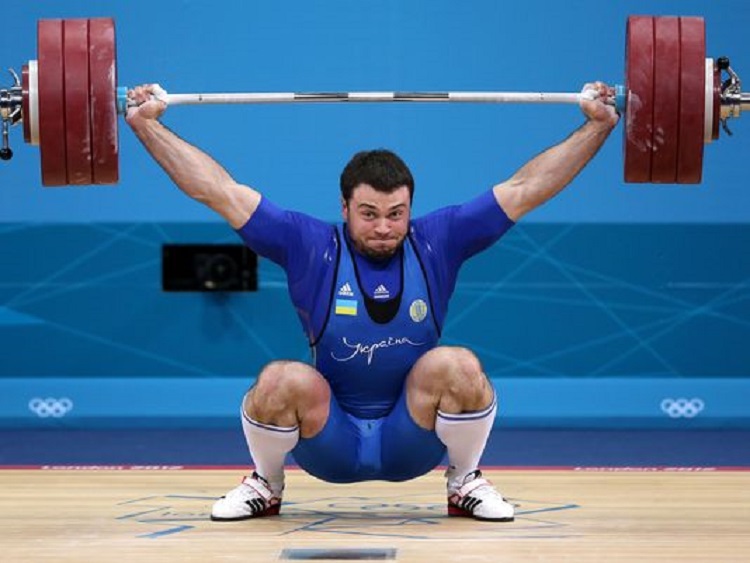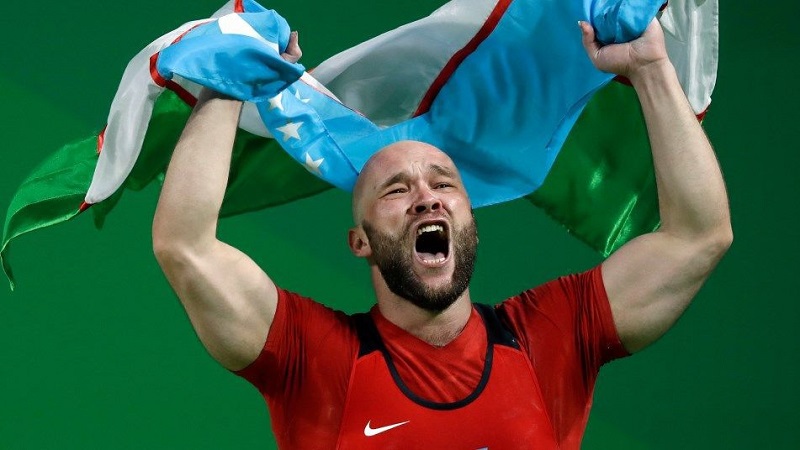
Five weightlifters, including Olympic champions Oleksiy Torokhtiy from Ukraine and Uzbekistan’s Ruslan Nurudinov, have been handed provisional suspensions after retests of their samples from London 2012 came back positive.
A statement by the International Weightlifting Federation (IWF) revealed reanalysis carried out by the International Olympic Committee (IOC) discovered adverse analytical findings from Armenia’s Melanie Daluzyan, Belarus lifter Mikalai Novikau and Azerbaijan’s Valentin Hristov as well as from Torokhity and Nurudinov.
Torkhtiy won the gold medal at London 2012 in the men’s 105-kilogram division and could now be stripped of that title, while Hristov claimed bronze at 56kg.
Nurudinov came fourth at 105kg at London 2012, but went on to win the World Championships in Wroclaw in Polandthe following year, the Olympic gold medal at Rio 2016 and this year’s Asian Games in Jakarta.
At Rio 2016 he set an Olympic record in the clean and jerk of 237kg.
All of the athletes have allegedly tested positive for testosterone with Daluzyan and Novikau also failing for stanozolol.
In their statement the IWF added that it is down to the IOC to “decide about any consequences” relating to London 2012 but, beyond that, “the responsibility to conduct results management” will be handed to the IWF.
If Torokhtiy does lose his gold medal, Iran’s silver medallist Navab Nassirshalal is in line to be promoted to Olympic champion.
Bartlomiej Bonk of Poland could move up to silver from bronze, while fifth-placed Uzbek Ivan Efremov could take bronze with his compatriot and fourth-place finisher Nurudinov also facing disqualification.
The failures are the latest in a long line announced by the IOC, which has been re-testing samples using more up-to-date technology.
There have now been a total of 116 positive tests at London 2012, including 24 in weightlifting, making it the “dirtiest” Olympics in history.
The final total of positives at Beijing 2008 following the completion of the re-tests was 86, which included 26 in weightlifting.
Weightlifting’s place on the Olympic programme at Paris 2024 remains under threat with the IOC cracking down on the sport’s drug problem.
Four requirements were outlined by the IOC in December 2017 for the sport to stay on the programme.
These are the full implementation of the recommendations from the Independent Clean Sport Commission and the Sport Programme Commission, the completion of the World Anti-Doping Agency code compliance monitoring programme and the submission of a questionnaire report on corrective actions.
The IOC Executive Board noted “progress” made by the IWF in Tokyo last month but kept the sport’s provisional status for Paris 2024.
Praise for the sport included the Tokyo 2020 qualification process, which requires athletes to compete and be tested more regularly.
The “Tbilisi decision”, which saw nine nations banned for a year after three or more Olympic positives in the Beijing 2008 and London 2012 retests, was also welcomed.
Armenia, Azerbaijan, Belarus, China, Kazakhstan, Moldova, Russia, Turkey and Ukraine were the nine nations suspended.
A partnership agreement between the IWF and the International Testing Agency, which will see the latter assume responsibility for key areas of the world governing body’s anti-doping programme, also received praise.
However, there was “confusion” at this year’s IWF World Championships in Ashgabat after ineligible weightlifters from the home nation Turkmenistan were allowed to take part in an “exhibition”. INSIDE THE GAMES






























